Wednesday, 20 March 2024, from 2.15pm to 4.15pm EET (UTC+2), Hybrid (On-site & Zoom).
📍Venue: Porthania, P545 (5th floor), Yliopistonkatu 3
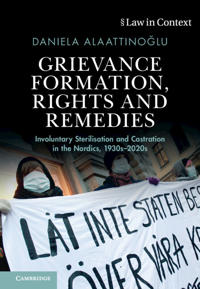 Welcome to the discussion seminar, dedicated to Assistant Professor Daniela Alaattinoğlu’s newest book Grievance Formation, Rights and Remedies (CUP 2023). The book provides a socio-legal analysis of grievance formation, rights development and remedial cultures in the context of Nordic sterilisation and castration policies in the period of 1930s-2020s. In the last century, the treatment of victims of involuntary sterilisation and castration in Nordic countries has varied drastically from state-to-state, across time and victim groups. Considering why this is the case, Daniela Alaattinoğlu investigates how laws and practices of involuntary, surgical sterilisation and castration have been established, abolished and remedied in three Nordic states: Sweden, Norway and Finland. Employing a vast range of primary and secondary sources, Alaattinoğlu traces the national and international developments of the last 100 years. Developing the concept of grievance formation, the book explores why some states have claimed public responsibility while others have not, and why some victim groups have mobilised while others have remained silent. Through this pioneering analysis, Alaattinoğlu illuminates issues of human and constitutional rights, the evolution of the welfare state and state responsibility in both a national and global context. The book makes contributions especially to sexuality, gender, social movements, and legal mobilisation.
Welcome to the discussion seminar, dedicated to Assistant Professor Daniela Alaattinoğlu’s newest book Grievance Formation, Rights and Remedies (CUP 2023). The book provides a socio-legal analysis of grievance formation, rights development and remedial cultures in the context of Nordic sterilisation and castration policies in the period of 1930s-2020s. In the last century, the treatment of victims of involuntary sterilisation and castration in Nordic countries has varied drastically from state-to-state, across time and victim groups. Considering why this is the case, Daniela Alaattinoğlu investigates how laws and practices of involuntary, surgical sterilisation and castration have been established, abolished and remedied in three Nordic states: Sweden, Norway and Finland. Employing a vast range of primary and secondary sources, Alaattinoğlu traces the national and international developments of the last 100 years. Developing the concept of grievance formation, the book explores why some states have claimed public responsibility while others have not, and why some victim groups have mobilised while others have remained silent. Through this pioneering analysis, Alaattinoğlu illuminates issues of human and constitutional rights, the evolution of the welfare state and state responsibility in both a national and global context. The book makes contributions especially to sexuality, gender, social movements, and legal mobilisation.
About the author

Daniela Alaattinoğlu is an Assistant Professor of Law at the University of Turku. She has previously held an Icelandic Research Fund postdoctoral fellowship at the University of Iceland and visiting fellowships at the Åbo Akademi Institute for Human Rights, the Max Planck Institute for Social Anthropology, and the University of Melbourne. She is the co-editor of Contesting Femicide: Feminism and the Power of Law Revisited (Routledge 2019).
Provisional programme
In addition to a short introduction of the book by its author, the seminar includes prepared comments from Prof. Johanna Niemi and Dr. Julian Honkasalo. The times are approximate.
-
- 2:15pm EET Seminar opening
Berfin Nur Osso (Helsinki) - 2:20pm EET Short introduction to the book
Daniela Alaattinoğlu (Turku) - 2:30pm EET Comments by the discussant
Prof. Johanna Niemi (Helsinki) - 2:50pm EET Comments by the discussant
Dr. Julian Honkasalo (Helsinki) - 3:10pm EET Response of the author
Daniela Alaattinoğlu (Turku) - 3:30pm EET Q&A and discussion
- 4:15pm EET End of seminar
- 2:15pm EET Seminar opening
 The event is open to all interested, but registration is required. Kindly register by filling in this form by Monday, 18 March 2024. Alternatively, you can scan the QR code (on the left) to access the registration form. All participants will receive a relevant chapter from the book to get acquainted with the book’s contents. Those who wish to join us online will receive the Zoom link by email after all registrations have been successfully recorded. All registration data will be deleted after the event.
The event is open to all interested, but registration is required. Kindly register by filling in this form by Monday, 18 March 2024. Alternatively, you can scan the QR code (on the left) to access the registration form. All participants will receive a relevant chapter from the book to get acquainted with the book’s contents. Those who wish to join us online will receive the Zoom link by email after all registrations have been successfully recorded. All registration data will be deleted after the event.
About the discussantS

Johanna Niemi is the dean of the Faculty of Law, University of Helsinki. She was awarded a Doctor Honoris Causa at Uppsala University (2010) and was Minna Canth Academy Professor between 2015–2019. Niemi holds LLM, Lis.L and JD all from University of Helsinki and trained on the bench in Rovaniemi district court in 1984. She has worked as a professor at the Universities of Helsinki, Turku, and Umeå, as visiting professor at Lund University, Sweden, and Fulbright scholar at University of Wisconsin, Madison (1997–1998). Niemi has held several expert functions in the academic community, including National Research Institute for Legal Policy (2004–2010), Scientific Committee of the EU Fundamental Rights Agency (2013–2018) and member of the Finnish Academy Committee on Cultural and Social Sciences (2016–2018). While known for her expertise in insolvency and criminal procedure law, she has also published extensively in the areas of law and gender, violence against women and human rights. Niemi is the author of the book Criminal Procedure and Violence in Intimate Relationship (2004, in Finnish) and co-editor of several books, including Responsible Selves. Women in the Nordic Legal Culture (Routledge 2001) and International Law and Violence against Women: Europe and the Istanbul Convention (Routledge 2020).

Julian Honkasalo is a docent in gender studies at the University of Helsinki and an INEQ (Helsinki Inequality Initiative) affiliated scholar. They have completed two independent postdoctoral research projects (Academy of Finland 2019-2023 and Kone 2016-2019) which focused on the historical connection between eugenics and transgender sterilization legislation and on the resistance of gender minorities to biopolitical violence. Honkasalo holds a PhD in gender studies (University of Helsinki, 2016) and a PhD in political science (The New School for Social Research, 2018), where Honkasalo was first a Fulbright visiting student and then enrolled as a full degree program PhD candidate. Their PhD degree from The New School consists of a major in Hannah Arendt’s political thinking and a minor in American politics. Honkasalo’s doctoral dissertation Superfluous Lives: An Arendtian Critique of Biopolitics was awarded with the Hannah Arendt award in politics, the New School’s award for an outstanding dissertation. Honkasalo’s forthcoming book, From the Absence of Gender to Feminist Solidarity: Hannah Arendt’s Political Philosophy (Rowman & Littlefield/Lexington, 2024) is currently under review. Honkasalo’s current research interests include philosophy of democracy, democratic theory, freedom of speech, online hate speech, democratic debate and argumentation, anti-gender mobilizing, Michel Foucault, Hannah Arendt. They are currently writing a non-fiction book on free speech in the context of Finland.





 Renata Salecl will also address some of the issues raised in the updated version of her last book,
Renata Salecl will also address some of the issues raised in the updated version of her last book,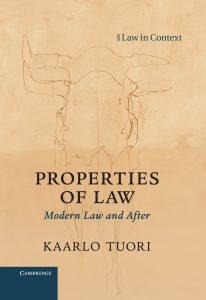 Welcome to the launch seminar, co-organised together with the
Welcome to the launch seminar, co-organised together with the 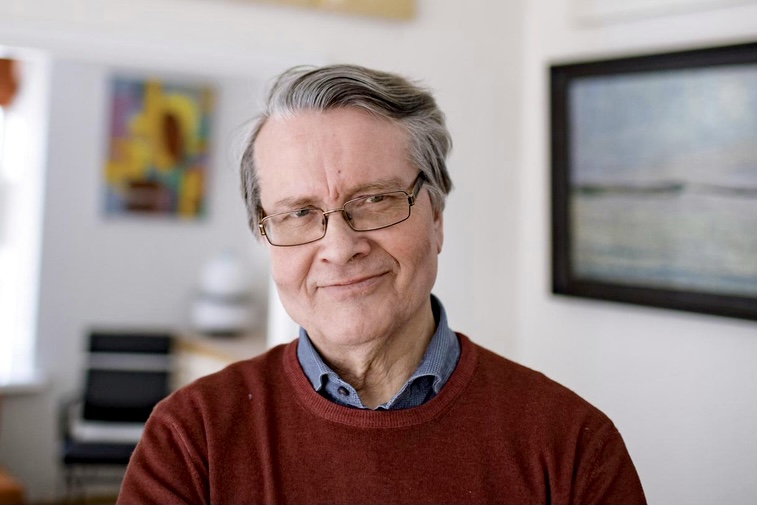

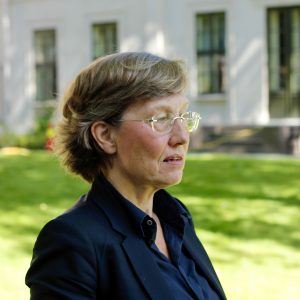



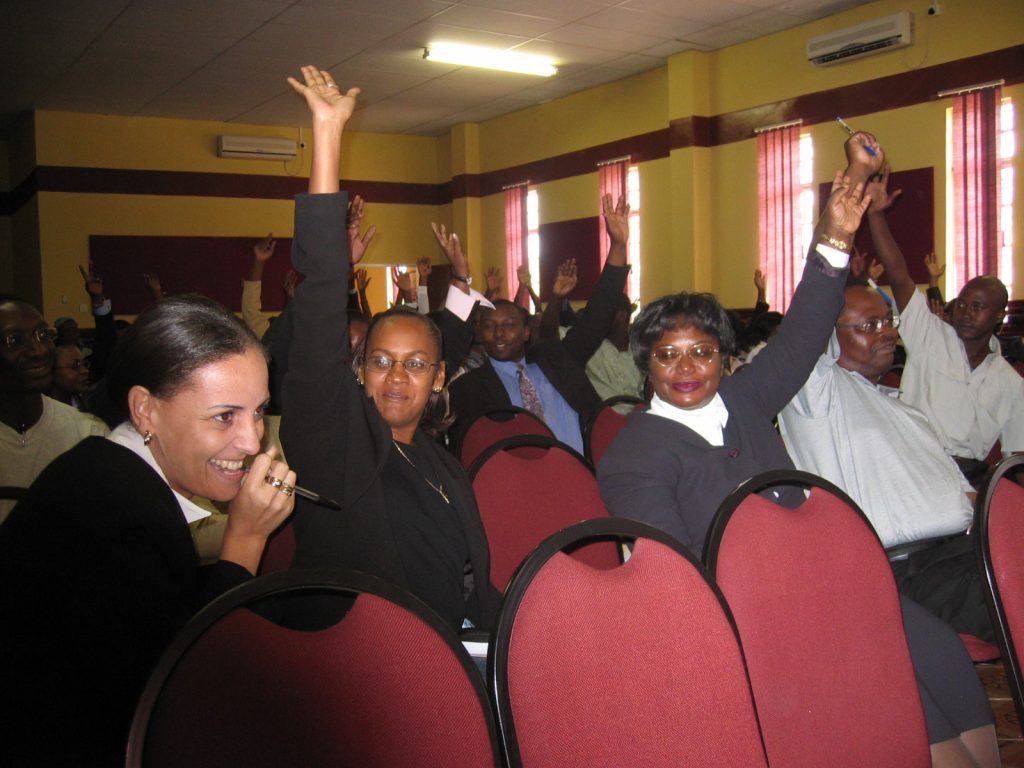
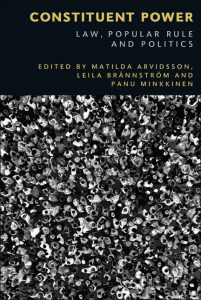 Welcome to the online book launch seminar of Constituent Power: Law, Popular Rule and Politics (EUP 2020), co-edited by
Welcome to the online book launch seminar of Constituent Power: Law, Popular Rule and Politics (EUP 2020), co-edited by 

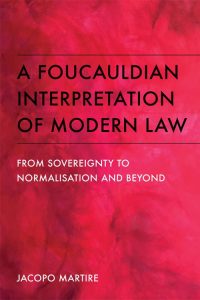 Although Foucault is certainly one of most influential scholars of our age, it is safe to say that law for Foucauldian scholarship is something like an ‘indigestible meal’. This is due to the liberal challenge that haunts Foucauldian approaches to law, which goes by the name of the ‘expulsion thesis’: how is it possible to analyse law through Foucauldian lenses if Foucault himself claimed (albeit cursorily) that law, in modern times, has been colonised by other disciplines? Foucauldian responses had been attempted but they appear – for all their sophistication – not only rather unconvincing but also advocating a sort of recourse to a language of rights and law that is – at its core – undistinguishable from that of liberalism. How is that possible? I suggest that the answer lied in the fact that the idea of law – in its most foundational concepts – is accepted as a sort of black box in modern legal theory and therefore we are unable to question properly its structural limits. To overcome this limitation, my work attempts a genealogy, sketching the most basic structure or syntax of the modern legal discourse.
Although Foucault is certainly one of most influential scholars of our age, it is safe to say that law for Foucauldian scholarship is something like an ‘indigestible meal’. This is due to the liberal challenge that haunts Foucauldian approaches to law, which goes by the name of the ‘expulsion thesis’: how is it possible to analyse law through Foucauldian lenses if Foucault himself claimed (albeit cursorily) that law, in modern times, has been colonised by other disciplines? Foucauldian responses had been attempted but they appear – for all their sophistication – not only rather unconvincing but also advocating a sort of recourse to a language of rights and law that is – at its core – undistinguishable from that of liberalism. How is that possible? I suggest that the answer lied in the fact that the idea of law – in its most foundational concepts – is accepted as a sort of black box in modern legal theory and therefore we are unable to question properly its structural limits. To overcome this limitation, my work attempts a genealogy, sketching the most basic structure or syntax of the modern legal discourse. Dr Jacopo Martire
Dr Jacopo Martire